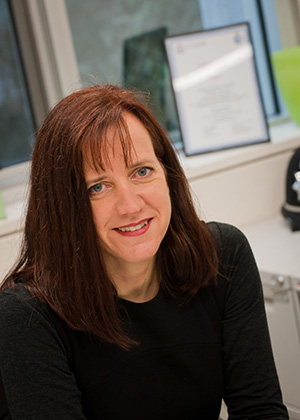Royal Commission calls on interviewing experts
Research news
A report on soliciting evidence from complainants has been prepared for the Royal Commission on Child Sexual Abuse.
Australia’s leading vulnerable witness interviewing experts have presented a major report to the Royal Commission into Institutional Responses to Child Sexual Abuse.
The researchers found that removing obstacles to technology and improving the quality of questioning, both in police interviews and in court, are the major areas where improvements are needed.
The Royal Commission was established in 2013 and will provide its final report to the Australian Government by December 2017.
Led by Deakin’s Professor Martine Powell, Director of the Centre for Investigative Interviewing, and three other Chief Investigators, a team of 32 researchers has prepared the report, entitled “An evaluation of how evidence is elicited from complainants of child sexual abuse,” to inform the Commission’s findings and recommendations.
The Royal Commission CEO, Philip Reed said: “The research on complainants’ evidence provides an invaluable insight into what really happens in court and how this can impact on a complainant’s ability to provide accurate and useful evidence.”
Professor Powell explained that child sexual abuse is difficult to prosecute and has one of the highest attrition rates of all criminal offences. Part of the difficulty in prosecuting these cases is that offending is often hidden from public view, leaving only the complainants’ evidence to establish the defendants’ guilt beyond reasonable doubt.
“The ability of child sexual abuse complainants to give quality evidence is crucial for successful prosecution, but it can be problematic for complainants to give such evidence,” she said.
“For both child and adult complainants, a willingness to engage in the justice process, and the accuracy and usefulness of the evidence they give, can be affected by anxiety and stress, delays in the trial process and how professionals question them.”
The research team conducted 17 studies of various sources to examine the use and effectiveness of alternative measures for eliciting evidence from child sexual abuse complainants.
In some of the studies, the perspective of judges, prosecutors, defence lawyers and witness advisors was obtained. Other studies analysed prosecution case files, trial transcripts and police video interviews with complainants, to determine trends and evaluate how measures for eliciting evidence are being administered.
Their overall findings suggest that alternative measures are supported by legal professionals and are being used as a matter of course with child complainants. However, five main areas were identified for improvement:
1. Overcome obstacles to using technology.
2. Align police interviews with evidence-based practice guidance.
3. Improve the quality of questioning in the courtroom.
4. Increase the availability of alternate measures for adults.
5. Reduce delays and streamline the prosecution process.
“How complainants are questioned by police and lawyers can have a major influence on the quality of evidence they give,” said Professor Powell.
“Questioning complainants is a complex task, but there is a strong evidence base on how to effectively develop these skills. Improving the skills of professionals in this area will allow complainants the opportunity to tell their story in a way that enables the most reliable and credible evidence to be obtained, from police disclosure to trial.”
Chief Investigators were: Professor Martine Powell, Dr Nina Westera (Griffith University), Professor Jane Goodman-Delahunty (Charles Sturt University), and Deakin PhD student Anne Pichler.
Share this story

Key Fact
“The ability of child sexual abuse complainants to give quality evidence is crucial for successful prosecution, but it can be problematic for complainants to give such evidence,”
